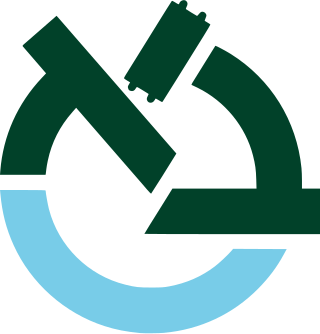
Bar-Ilan University is a public research university in the Tel Aviv District city of Ramat Gan, Israel. Established in 1955, Bar Ilan is Israel's second-largest academic institution. It has 20,000 students and 1,350 faculty members.

Yuval Ne'eman was an Israeli theoretical physicist, military scientist, and politician. He was Minister of Science and Development in the 1980s and early 1990s. He was the President of Tel Aviv University from 1971 to 1977. He was awarded the Israel Prize in the field of exact sciences, the Albert Einstein Award, the Wigner Medal, and the EMET Prize for Arts, Sciences and Culture.
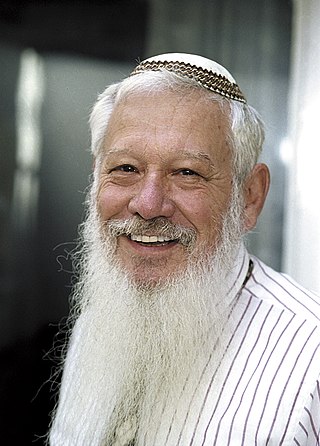
Robert John Aumann is an Israeli-American mathematician, and a member of the United States National Academy of Sciences. He is a professor at the Center for the Study of Rationality in the Hebrew University of Jerusalem in Israel. He also holds a visiting position at Stony Brook University, and is one of the founding members of the Stony Brook Center for Game Theory.
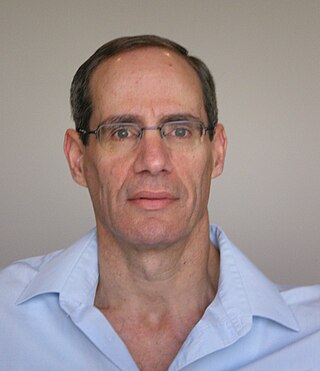
Noga Alon is an Israeli mathematician and a professor of mathematics at Princeton University noted for his contributions to combinatorics and theoretical computer science, having authored hundreds of papers.

Vitali Davidovich Milman is a mathematician specializing in analysis. He is a professor at the Tel Aviv University. In the past he was a President of the Israel Mathematical Union and a member of the “Aliyah” committee of Tel Aviv University.
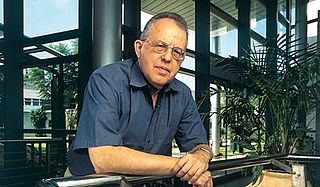
Haim Harari is an Israeli theoretical physicist who has made contributions in particle physics, science education, and other fields. He was the President of the Weizmann Institute of Science from 1988 to 2001.
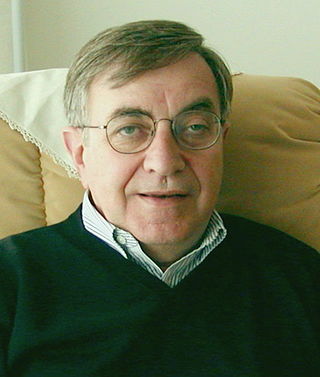
Elhanan Helpman is an Israeli economist who is currently the Galen L. Stone Professor of International Trade at Harvard University. He is also a Professor Emeritus at the Eitan Berglas School of Economics at Tel Aviv University. Helpman is among the thirty most cited economists in the world according to IDEAS/RePEc.

Joshua Jortner is an Israeli physical chemist. He is a professor emeritus at the School of Chemistry, The Sackler Faculty of Exact Sciences, Tel Aviv University in Tel Aviv, Israel.

Micha Sharir is an Israeli mathematician and computer scientist. He is a professor at Tel Aviv University, notable for his contributions to computational geometry and combinatorial geometry, having authored hundreds of papers.

Shlomo Havlin is a professor in the Department of Physics at Bar-Ilan University, Ramat-Gan, Israel. He served as President of the Israel Physical Society (1996–1999), Dean of Faculty of Exact Sciences (1999–2001), chairman, Department of Physics (1984–1988).

Nitza Metzger-Szmuk is an Israeli architect, and Emet Prize laureate in architecture for her work on documentation and preservation of Tel Aviv's White City. She also received the Rokach Prize in 2001.

Ephraim Stern was an Israeli archaeologist and professor at the Hebrew University of Jerusalem. He specialized in the archaeology of ancient Israel and Judah and Phoenicia, and was known for his excavations at Tel Dor (1980–2000).
Joseph Ginat was an Israeli anthropologist, author, political advisor, and soldier.
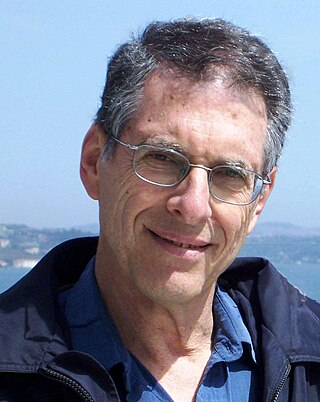
Abraham Nitzan is a professor of chemistry at the Tel Aviv University department of chemical physics and the University of Pennsylvania department of chemistry.

Itamar Singer was an Israeli author and historian of Jewish-Romanian origin. He is known for his research of the Ancient Near East and as a leading Hittitologist, pioneering the study of this ancient Anatolians culture in Israel and elucidating the tensions which brought about its demise.
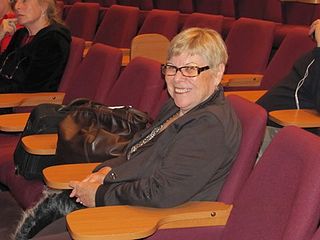
Sarah Ben-David is an Israeli Professor of Criminology whose scientific and public activity focuses mainly on victimology and criminology and overlapping areas between these two fields. In recent years, Ben-David has worked to encourage research, awareness and therapy in the field of sexual harassment of men and women, and regarding awareness of the reciprocal nature of intimate partner violence and domestic violence.
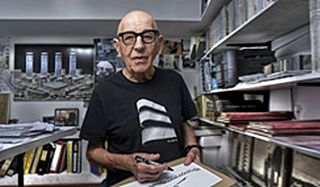
Yaacov Yaar is an Israeli architect, who received the Israeli prize for architecture in the year 2006 and the EMET Prize in the year 2014.

Ariel Porat is the president of Tel Aviv University (TAU), a full professor and former dean at TAU's Buchmann Faculty of Law. Until his appointment as president, he was a distinguished visiting professor of law at the University of Chicago Law School. He is a member of the Israel Academy of Sciences and Humanities, incumbent of the Alain Poher Chair in Private Law at TAU, and recipient of The EMET Prize for Art, Science and Culture for Legal Research.
Menachem Amir was an Israeli criminologist. He spent most of his career as a professor at the Hebrew University of Jerusalem, where he was the Benjamin Berger Chair Professor of Criminology until he retired in 1999. Amir received the Israel Prize from the Israeli government in 2003 for his work, one of the first two criminologists to do so alongside Shlomo Giora Shoham.

Shlomo Shoham is a retired judge, served as the Chairman of the Israeli Parole Committee and the Deputy National Commissioner for the Parole Committees, served as the only Commissioner for Future Generations, an office established by the late Israeli Justice Minister Tommy Lapid father of Yair Lapid, in the years 2002-2006. Global Vice President of NIFG the super organization of Commissions for Future Generations. Serves as the head of the SGLA program, the program for training future leaders and a board member of the World Intellectual Forum.

















